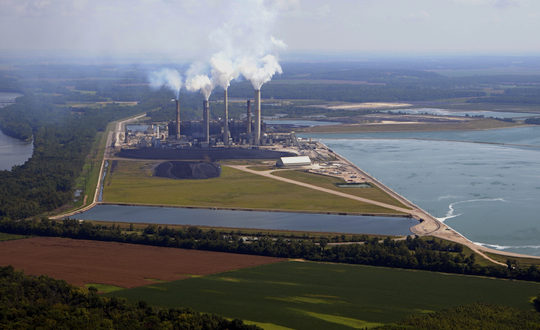With the IPCC’s most recent report clanging “Code Red for Humanity” we revisit our show with Jason Moore, author of Capitalism in the Web of Life, from December 2019…it’s only gotten, and will continue getting, worse.
Interchange – Disorganizing Nature: On the Capitalocene with Jason Moore
“Moore’s writing is that of a sincere, discerning and formidable critic of ecological and political arrogance, both capitalistic and leftist; and crucially (against that most insidious of critical bugbears) he is methodical and convincing in suggesting an alternative series of attitudes and understandings.” (Ciarán O’Rourke, “Reading ‘Capitalism in the Web of Life’ by Jason W. Moore after COVID19″)
A capitalist looks at a forest and sees dollar signs; an environmentalist sees trees and birds and soils; a world-ecologist sees how humans and other species have co-produced the forest, and how that “bundled” forest simultaneously conditions and constrains capital today.
Super Polluter – Southwest Indiana coal plants
***
Since the 1970’s, environmentalists have framed our epoch as the “Anthropocene,” a period defined by man’s — and often specifically men’s — unidirectional impact on a quickly heating planet Earth. The so-called Anthropocene continues to be caused by only a small portion of the people on the planet, following hierarchies of race, gender, class, and the artificial division of Man and Nature. To call it the “Anthropocene”, however, obscures the underlying dynamics of power that got us to our current planetary crisis.
On this episode of Interchange, show producer Bradi Heaberlin joins Jason Moore, author of Capitalism in the Web of Life, in the WFHB studio to untangle the reflexes of the trappings of an Anthropocentric view of the planetary crisis and help us locate ourselves in the Capitalocene. They ask, and begin to answer, the questions: who caused the the climate crisis? Are we in an anthropocene, a period defined by the earth’s people, or a capitalocene? Moore argues that the relationship between people and the web of life is fundamentally about the ways in which capitalist power, exploitation, and appropriation move through nature and the ways nature moves through the confines of capitalist social and economic relations on earth.
 GUEST
GUEST
Jason W. Moore teaches World History and World-Ecology at Binghamton University and is Coordinator of the World-Ecology Research Network. He is the author of several books, including Capitalism in the Web of Life: Ecology and the Accumulation of Capital, and of numerous award-winning essays in environmental history, political economy, and social theory.
CREDITS
Host: Doug Storm
Episode Producer: Bradi Heaberlin
Editor: Doug Storm
Executive Producer: Kade Young
 WFHB Bloomington Community Radio
WFHB Bloomington Community Radio

